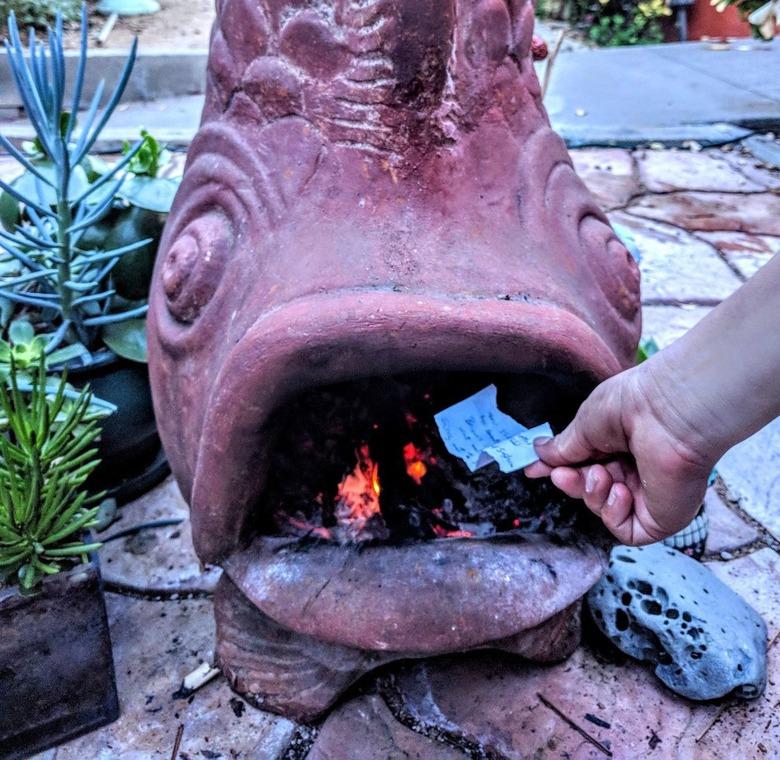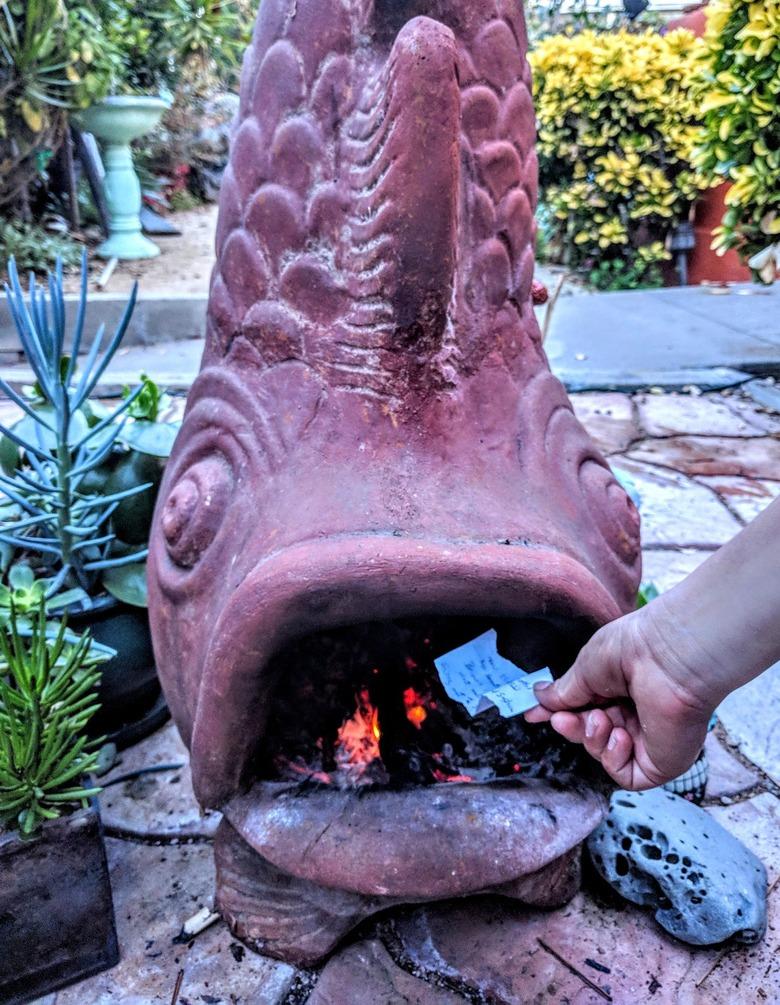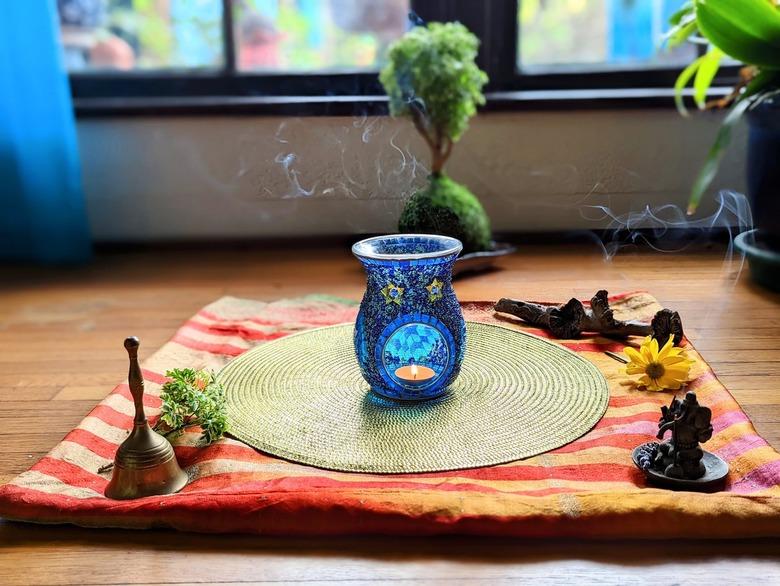4 Rituals That Can Contribute To Your Wellbeing, And Why They're Important
Rituals have been part of human existence for thousands of years, but modern psychologists define the term as "a predefined sequence of symbolic actions often characterized by formality and repetition that lacks direct instrumental purpose," according to Harvard Business School. What sets rituals apart from habits is that the latter yields a specific result — we exercise to stay fit or we meditate to clear our minds. Rituals, on the other hand, have no conducive connection to the outcome. A March 2016 study describes them as "goal demoted." For example, we always sing "Happy Birthday" to the same tune even though it doesn't result in a notable external outcome.
According to research, practices that involve rituals provide our nervous system with a sense of stability and predictability. A 2017 study revealed that rituals can decrease anxiety about an uncertain future (which is especially and unfortunately relevant nowadays) and improve performance. During a University of Toronto study, participants who performed a ritual before completing a task exhibited less anxiety and sensitivity to personal failure than when they finished the task without first performing the ritual.
Quieting anxiety alone curbs the rampant production of the stress hormone cortisol, reports the Center for Eating Disorders Management. High levels of cortisol from long-term stress can negatively affect blood pressure, heart health, and overall wellbeing, according to the University of Rochester Medical Center.
While researchers are still studying the benefits of rituals, I know from direct experience that traditional grounding practices helped me survive a childhood living in the midst of war and oppression in Iran. As an adult in the U.S., I've continued to lean on the power of such soul staples and I've even developed new rituals to help me live a more fulfilling life. Here are four that I rely on:
1. "Remember the Week" Ritual
You'd be surprised how much we forget. Significant moments that brighten life — a laughter-filled brunch with an old friend or a child's inaugural visit from the Tooth Fairy — can tumble into oblivion after a month or two. This "remember the week" ritual allows us to bring more vibrancy to our lives and conversations. I'm not sure when I first came across the practice, but I've customized it for our family:
- At the end of every week, we recall one good and one not-so-great (challenging) incident that occurred during the past week.
- We write our thoughts on a piece of paper, fold it, and place it in a container.
- On December 31, we gather all participants and empty out the full container.
- We randomly draw from the pile of folded paper and read.
- Remembering our past year more vividly, we compost or burn each piece of paper.
Tips:
- Incorporate this into your Sunday dinners to encourage conversation.
- Don't fret if you miss a week or even several. (One year we had folded papers recounting less than half the year and the ceremony was still delightful.)
- Do this solo or with others.
- You can focus only on good things that happened over the week, but we like duality to add a bit more texture and spice to our conversation.
2. Technology Breaks
I notice that when I take regular breaks from devices, my quality of life increases. I wanted to add some ritualized elements to this practice and inspired by the bookWild Mercy: Living the Fierce and Tender Wisdom of the Women Mystics by Mirabai Starr, I began experimenting. Starr observes the Jewish tradition of Shabbat from Friday at sundown to the following sundown on Saturday and engages in restful activities that don't include devices.
Last year, I learned that "Technology Shabbat" was coined by husband and wife team Tiffany Shlain and Ken Goldberg, whose family has unplugged for one day each week for the past decade. My family practiced a modified secular version of this tradition for a while, but to honor our preteen's freedom and weekend social life, we decided to have unplugged time on weekday evenings. These mini tech breaks might be more practical for you too. Here's how we do it:
- After dinner and chores, we gather the household, light a candle, and sound a bell.
- We put our phones on silent and for the next hour or two, we read, play board games, draw, rest, and partake in other non-tech activities.
- When the time is up, we gather again, sound the bell, and blow out the candle.
Tips:
- Refrain from screens two hours before bedtime for a more restful sleep.
- Clear your schedule regularly for a four-hour, eight-hour, or longer Tech Shabbat during the weekend.
3. Connection Ceremony
Even though my husband and I both work from home, we sometimes miss what is going on in the other person's life — important thoughts and feelings end up going unnoticed and an unintentional distance begins to create a wedge between us. This ritual allows us to have a designated time and space where we are completely focused on one another. As a gardener, I love incorporating watering flowers, which entails taking time to verbalize what we adore and appreciate about our partner. It is a practice I learned during my time with Thich Nhat Hanh's Plum Blossom Sangha meditation group. This intimacy ritual is always illuminating and proves especially fruitful during times of miscommunication and hardship:
- Prepare a ceremonial space. We include a talking stick (to give each person a chance to express thoughts and feelings without interruption), a candle, a bell, and incense.
- We light the candle and incense.
- One of us, holding the bell, invites our benevolent ancestors whose blood runs in our veins. We invite loving communication, playfulness, and intimacy. We then sound the bell.
- Passing the talking stick, we take turns watering flowers: recounting everything we appreciate about one another.
- We then take turns describing our internal landscape (what is going on in our lives and our notable thoughts and feelings).
- We move on to our relationship. How do we perceive our current connection? Are we moving as a team? What needs improvement? We provide loving criticism and feedback the best we can.
- When we feel complete, one of us picks up the bell and expresses gratitude to our ancestors and to life for the opportunity to have this ceremony. We end with a prayer — "may the fruit of our ritual benefit all beings" — and sound the bell.
Tips:
- You can do this ritual with a friend, your child, or another family member.
4. Family Meetings
Similar to the Connection Ceremony, we have regular family meetings incorporating rituals. The setup is similar:
- We light a candle and sound a bell with an invocation to begin the meeting.
- We use a talking stick and proceed with the first five steps of the Connection Ceremony.
- Each person takes turns sharing their view of how we excel as a family.
- We then speak of the areas where we can improve as a whole. This can include becoming closer, having more fun, and experiencing less conflict.
- Each person recounts how they are contributing to the family and what they perceive as their own shortcomings.
- Each person comes up with a personal goal to help themselves become a better part of the household.
- In the end, we make a support request to the rest of the family — a request such as "I have an important meeting between 6-7 p.m. on Tuesday. Can you go out to eat so I'll have the house to myself?" Or, "Can you pack a new snack for school this week?"
- We conclude with gratitude and a prayer that the fruit of our ritual may benefit all beings. Lastly, we sound the bell.
Tips:
- Allow your child to say the opening remarks and/or prayer and sound the bell.
- Add your own personal details to the ceremony.
- This ritual is useful for any situation that requires long-term teamwork.
Keep in mind that you can regularly connect with your spouse, have family meetings, write in your diary about your week, and take a break from technology without it being a ritual and still reap the benefits. But because rituals have evolved with humans, they make each practice more robust and impactful, contributing to overall wellbeing.


